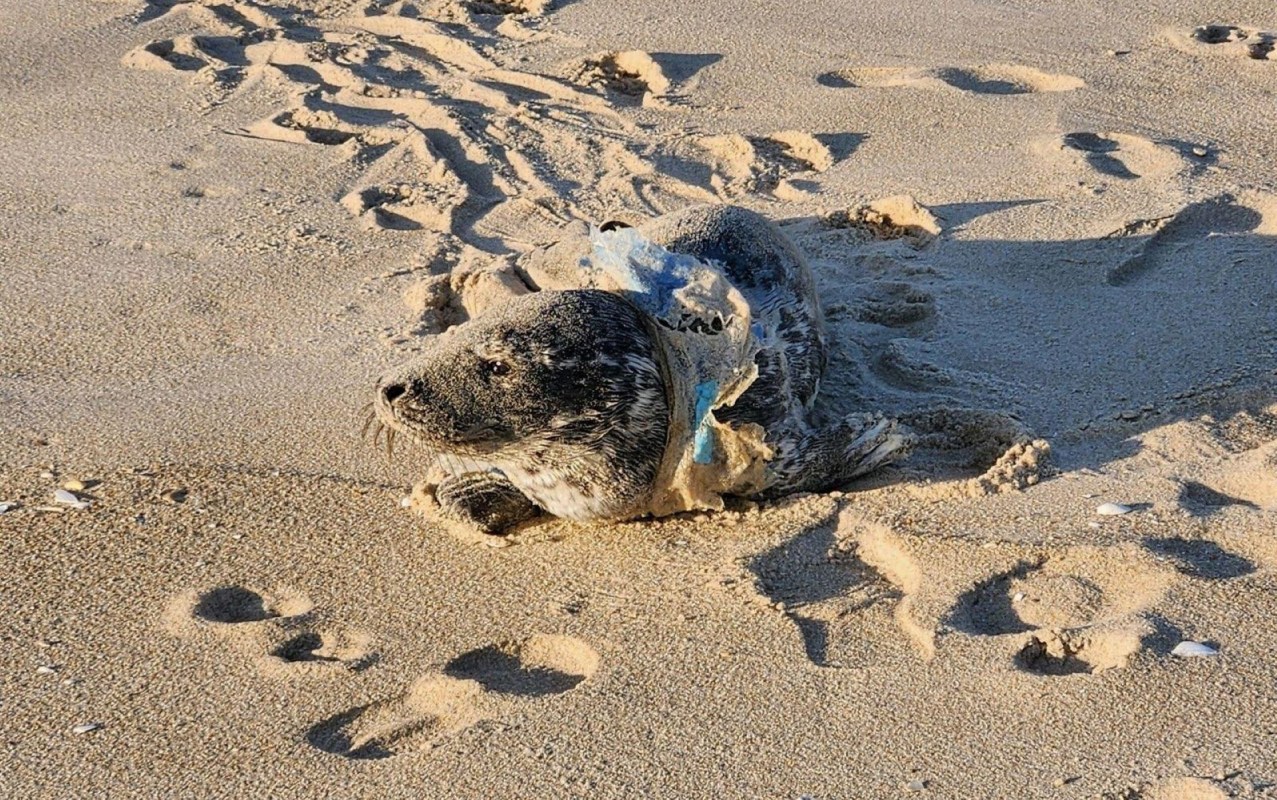A malnourished seal pup suddenly died after beginning to recover following treatment, and a concerning trend surrounding the yearly migration of gray seals suggests that human activities may be to blame.
What happened?
As detailed by CBS News, the Marine Mammal Stranding Center typically sees an uptake in seal rescues during the winter migration season, and entanglement in plastic and other debris is a major factor.
The same day that news broke about a female pup rescued from the "plastic overwrap from a case of bottled water," a young male seal that was stranded on land died.
"Despite the extraordinary efforts by our staff to resuscitate him, the pup passed away only a few minutes later. A full necropsy will be performed to provide insight on what may have caused him to go down so quickly," the center told the news outlet. "This is always the hardest part of animal rescue."
Rescuers also saved a 2- or 3-week-old male on the day they assisted the female pup.
Why is this concerning?
It's still unclear what caused the male pup that died to decline, but the fact that he was wandering alone for more than a quarter of a mile, per CBS News, raises questions about what he might have encountered on his journey.
The National Oceanic and Atmospheric Administration noted that gray seals have a lifespan of around 25 to 30 years, but marine debris can significantly reduce the protected creatures' chances of survival, given that exhaustion after entanglement is one of the hazards.
According to UNESCO's Intergovernmental Oceanographic Commission, there are trillions of pieces of plastic and microplastics polluting our waters, and if we don't change course, plastic is projected to outnumber fish in the sea by 2050.
While the female pup that was caught in plastic happily survived, other creatures haven't been so lucky after encountering the human-made material.
Despite being brought to a rehabilitation center, a baby dugong died in 2019 as a result of ingesting plastic, while an autopsy found that plastic had caused the death of a young beached whale in October.
Billions of people also depend on the oceans for food and their livelihoods, so a further declining marine ecosystem would have widespread global consequences.
What is being done to combat plastic pollution?
Scientists, organizations, and governments have been working to clean up our oceans through new technologies and coordination.
A team at Princeton used egg whites to create a material that filters microplastics from seawater, and their research was just one of many promising potential solutions. Meanwhile, a global treaty aimed at reducing plastic pollution is expected by the end of this year.
Switching to reusable water bottles and bringing your own to-go containers to restaurants are simple ways for individuals to cut down on waste that's making our world a less healthy place.
Join our free newsletter for cool news and cool tips that make it easy to help yourself while helping the planet.









